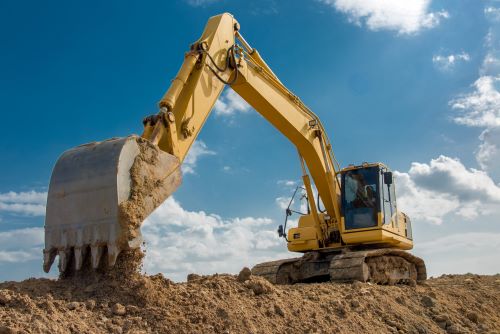
How to Be a Better Excavator Operator

One of the biggest things you can do when determining how you can be a better excavator operator is to really make sure you’re up to date with all your training. You also need to make sure that you continue to follow all excavator safety tips before, during, and after operation. What can set you apart as an excavator operator is your attention to detail and how focused you stay during the times which you’re working. Assuming you’re determined to be a better excavator operator and your training is up to date, then take a good look through the following safety tips—as a reminder of sorts—so you stay at the top of your game while at work.
Safety Tips Before Operation
Make sure your seat belt is worn low and snug on your waist. Much like driving a car, check that your mirrors are free from smudges and that all are clean enough to see out of. Verify that all the control levers are operational and work correctly. Double-check the propel system—beforehand is best so you’re already cleared to start the job at hand. Make sure all utilities have been marked so you avoid digging up any utility lines.
Safety Tips During Operation
Only one person—the excavator operator—belongs in the bucket, the cab, or anywhere else around an excavator. Be seated, strapped in, and ready to go. Pay attention to the speed at which you operate, especially over uneven terrain. The bucket should remain low and close to the ground during transport. It’s easier for people to be aware of you when you keep yourself in view.
Treat the machine with care. That means moving it around the site on ground that is as flat as possible. In treacherous conditions or on steep slopes, use the boom and arm as a sort of guide to move up and down the slope. For steep slopes, go up with the boom and arm extended. When going down, use the flat part of the bucket positioned on the ground. When trenching, make sure that things are level for the machine by putting dirt under the tracks. Doing so decreases the risk of cave-ins. When loading material into the bed of the truck, make sure you swing the bucket over the bed and never the cab. Loose materials will not hit the cab if it’s being avoided during loading. Never strike the bucket on anything to clean it.
Safety Tips After Operation
Find a level space to park the machine and leave the bucket low to the ground. Turn off all auto switches and help the turbocharger cool down by running half throttle for a few minutes. Have it pre-set to low idle before turning it off. Make sure you lock up the cab upon exit.
If you’re looking for more information on how to be the best excavator operator you can be, check out West Coast Training to see what training and certifications they offer.
